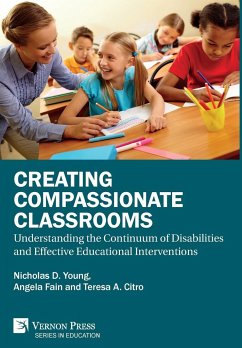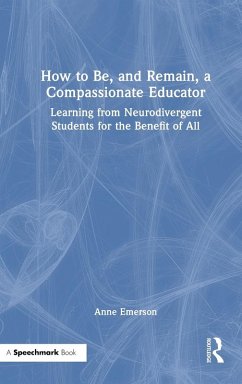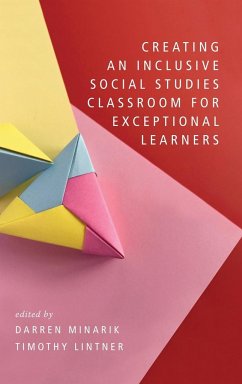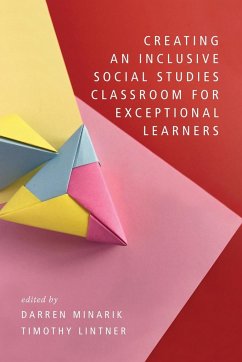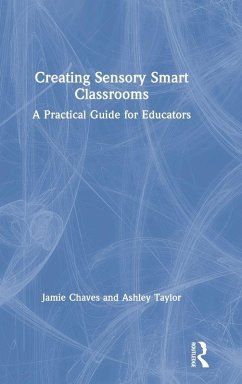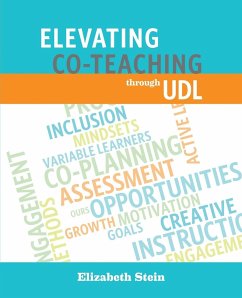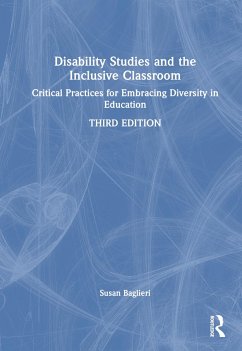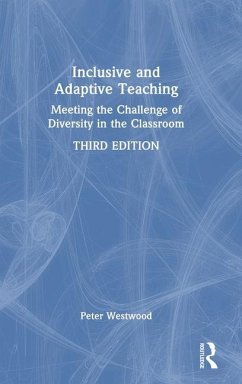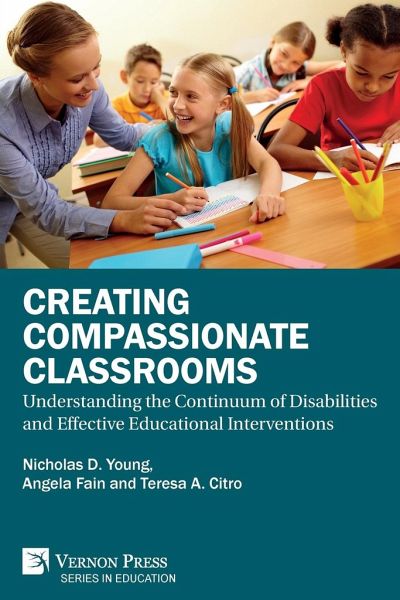
Creating Compassionate Classrooms
Understanding the Continuum of Disabilities and Effective Educational Interventions
Versandkostenfrei!
Versandfertig in 1-2 Wochen
51,99 €
inkl. MwSt.

PAYBACK Punkte
26 °P sammeln!
Throughout the chapters of this book, the reader will be introduced to the thirteen disability categories included in IDEA (specific learning disabilities, emotional/behavioral disorders, autism, other health impaired, intellectually disabled, multiple disabilities, speech or language impairments, traumatic brain injury, hearing impairment, deaf/blind, deafness, visual impairment, and orthopedic impairment), using the legally established definitions. Lengthy descriptions of best practices, modifications and accommodations follow, offering a complete picture of each disability and how educators...
Throughout the chapters of this book, the reader will be introduced to the thirteen disability categories included in IDEA (specific learning disabilities, emotional/behavioral disorders, autism, other health impaired, intellectually disabled, multiple disabilities, speech or language impairments, traumatic brain injury, hearing impairment, deaf/blind, deafness, visual impairment, and orthopedic impairment), using the legally established definitions. Lengthy descriptions of best practices, modifications and accommodations follow, offering a complete picture of each disability and how educators and parents collaboratively can assist the struggling student. To set the stage, the book begins with chapters that discuss special education in general, response to intervention as an intermediary step in the academic continuum of support, and the individualized education plan process. Subsequent chapters examine each of the thirteen aforementioned IDEA disability categories, which have not been commonly incorporated into one comprehensive resource; however, for the sake of brevity, some disability categories have been combined when doing so did not impact practice implications. Emphasis is placed on effective classroom strategies and interventions associated with each disability category with the intent of providing practitioners and those who support them with the information and tools necessary to support students with identified educational needs. To the extent possible, the primary authors sought to ensure this resource was practical and user-friendly for educators who work directly with students with the range of recognized disabilities. This book demystifies the special education process and disability categories as well as offers educators and their families the tools to help our students, who have one or more disabilities, find life-long success. Ensuring the best for our students with disabilities requires that we first acknowledge and support the hard work and deep commitment of those professionals and parents/guardians who devote their lives to teaching, reaching, mentoring and advocating for those most vulnerable in our classrooms.



